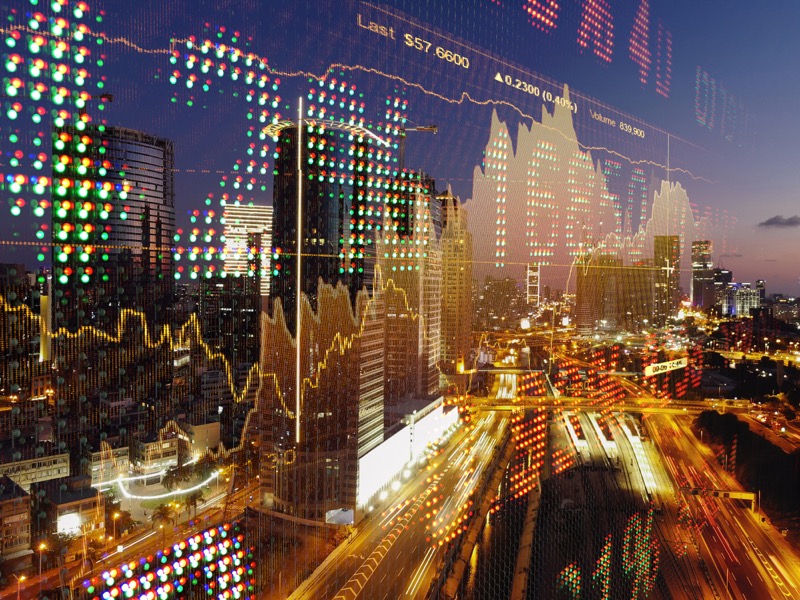
Divestment from Russia and punishing sanctions were only the beginning of the economic fallout from the war on Ukraine, which is being felt around the globe. The most affected sector is energy. The shift away from Russian oil and gas is resulting in reduced world supply, rising prices and a boost for clean energy development.
With Europe’s heavy dependence on Russian fossil fuels, the continent will be at the forefront of the energy transition, BMO Global Asset Management said in analyzing the conflict from a responsible-investing perspective.
“While rising energy prices bring risk of further inflation, decreasing reliance on Russian energy can be a catalyst for accelerating the timeline for clean energy in Europe,” BMO GAM said in a commentary co-authored by Nalini Feuilloley, head of responsible investment, and Rosa van den Beemt, vice-president of stewardship.
The BMO Clean Energy Index ETF is one of a growing number of renewable-energy ETFs in Canada, along with the CIBC Clean Energy Index ETF, the Dynamic Active Energy Evolution ETF, the First Trust NASDAQ Clean Edge Green Energy ETF and the Harvest Clean Energy ETF.
“The geopolitical implications of oil and gas prices are not new, but in 2022 this conflict and its energy dimensions are occurring after significant developments in renewable energy technologies,” said Oakville, Ontario-based Harvest Portfolios Group Inc. in a market commentary.
“They are coming at a time when the world is on a long-term trajectory away from fossil fuels and toward clean energy and may serve as a catalyst for faster and more comprehensive adoption of clean-energy technologies.”
Currently, though, rising oil and gas prices are raising profits for traditional energy producers while contributing to higher inflation.
Especially vulnerable is Europe. “Higher inflation and weaker business confidence will likely cost European GDP growth in the next few quarters,” said Alfred Lam, senior vice-president and chief investment officer with CI Multi-Asset Management, a unit of Toronto-based CI Investments Inc.
Lam has increased his weighting in the energy sector while reducing exposure to Europe. “We anticipate rates will only rise slowly, with the European Central Bank delayed at least six months. Hence, interest rates will be negative after inflation for longer.”
In contrast to Europe, the direct impact on Canada from the war in Ukraine and economic sanctions imposed on Russia will be fairly limited, according to the latest economic forecast from Montreal-based Desjardins Group. In 2021, Desjardins said, Russia accounted for only 0.1% of all Canadian merchandise exports and 0.3% of merchandise imports.
The indirect impacts of rising prices for gasoline and other commodities will add to inflationary pressures in Canada, as is the case globally. However, Canada’s economy — especially in the western provinces that produce oil and gas, grains and potash — should benefit from the strong demand for commodities generated by the sanctions on Russia, Desjardins said.
In the U.S., the main impact on consumer spending is skyrocketing gasoline prices, Desjardins said, which is causing households to cut back on other discretionary spending and undermining consumer confidence. On the business side, the uncertainty generated by the war in Ukraine could hinder U.S. investment in sectors other than oil and gas.
The most adversely affected economy, other than Ukraine, is Russia itself. With the removal of Russian companies from global and emerging market benchmarks, not even passively managed index funds such as the Vanguard FTSE Emerging Markets All Cap Index ETF need to hold Russian securities.
An end to the war on Ukraine won’t be enough to undo the lasting damage to the Russian economy. “Even if Russian sanctions were lifted, western companies will likely remain reluctant to again embrace Russia,” said Eric Lascelles, chief economist for RBC Global Asset Management Inc., in a March 29 commentary. “They now recognize how vulnerable any Russian operations are. They’ve also seen Russia’s efforts to invalidate their right to intellectual property over the past month.”
BMO GAM’s social-responsibility team said that while more can be done, they’re encouraged by the actions already taken against Russia by corporations, the financial sector and governments. “We cannot predict the outcome of this crisis but hope it can set a precedent for how the financial community can have an ESG-informed response to investments in conflict-affected and high-risk regions.”
Food insecurity is another consequence of the war. With Russia and Ukraine both normally being major suppliers of grain and fertilizers, prices of these agricultural commodities have surged in anticipation of major supply shortages.
Alternative food supplies can come from countries like Brazil, currently the world’s leading exporter of food commodities including soybeans and corn, said Stephen Dover, chief market strategist and head of the Franklin Templeton Investment Institute in California. “As countries look to diversify their fertilizer suppliers, China and Canada could also benefit as they are major fertilizer exporters.”
A proxy for the global agriculture industry is the iShares Global Agriculture Index ETF, the only one of its kind in Canada. The fund gained about 20% in the five weeks since the Feb. 24 invasion. Along with food producers, the ETF’s holdings include fertilizer, agricultural chemicals and machinery companies.
Dover said existing shortages of semiconductors will worsen if the war continues because Ukraine is the world’s largest supplier of neon gas, a key input in the manufacturing process. This will affect providers of consumer durables, including the auto industry.
Elsewhere in the technology sector, the Russia-Ukraine war has emphasized the threat that inadequate cybersecurity can pose to governments and corporations alike.
“Cybersecurity companies have seen significant increases in demand for their services,” said Raj Lala, president and CEO of Toronto-based Evolve Funds Group Inc. “As a result, cybersecurity stocks have outperformed recently in anticipation that spending on digital security will increase.”
Funds specializing in this technology theme include the Evolve Cyber Security Index Fund, the First Trust Nasdaq Cybersecurity ETF, the Horizons GX Cybersecurity Index ETF, and the recently launched CI Digital Security ETF.